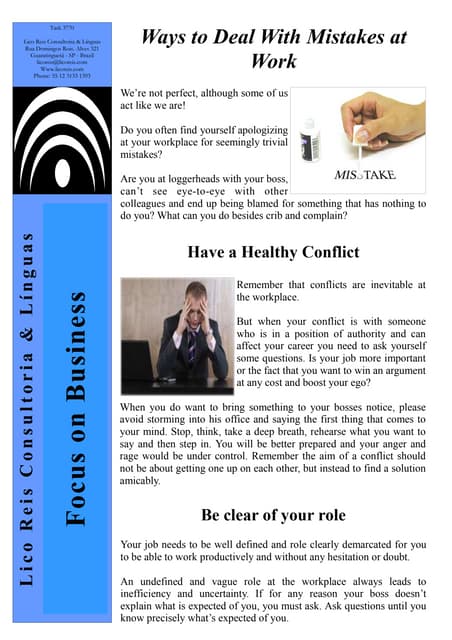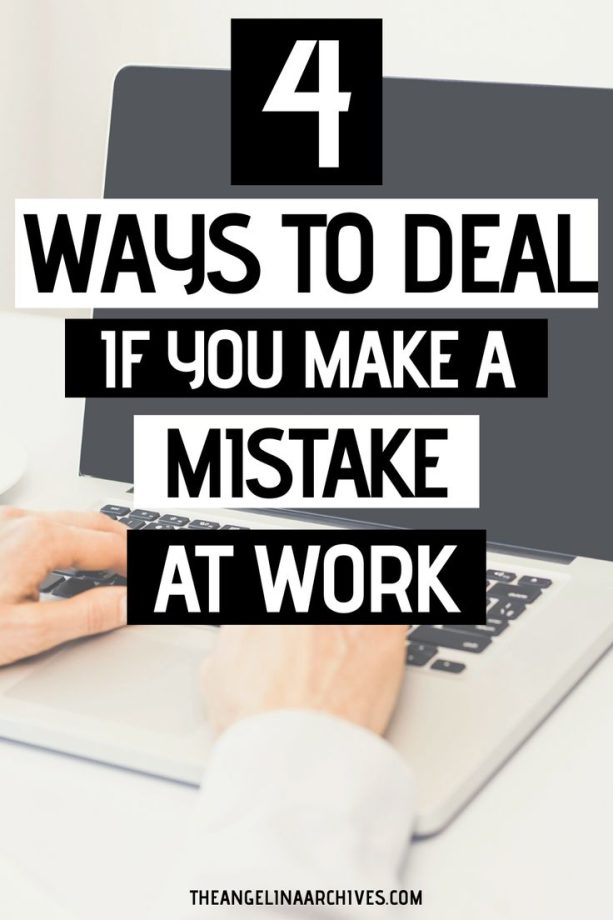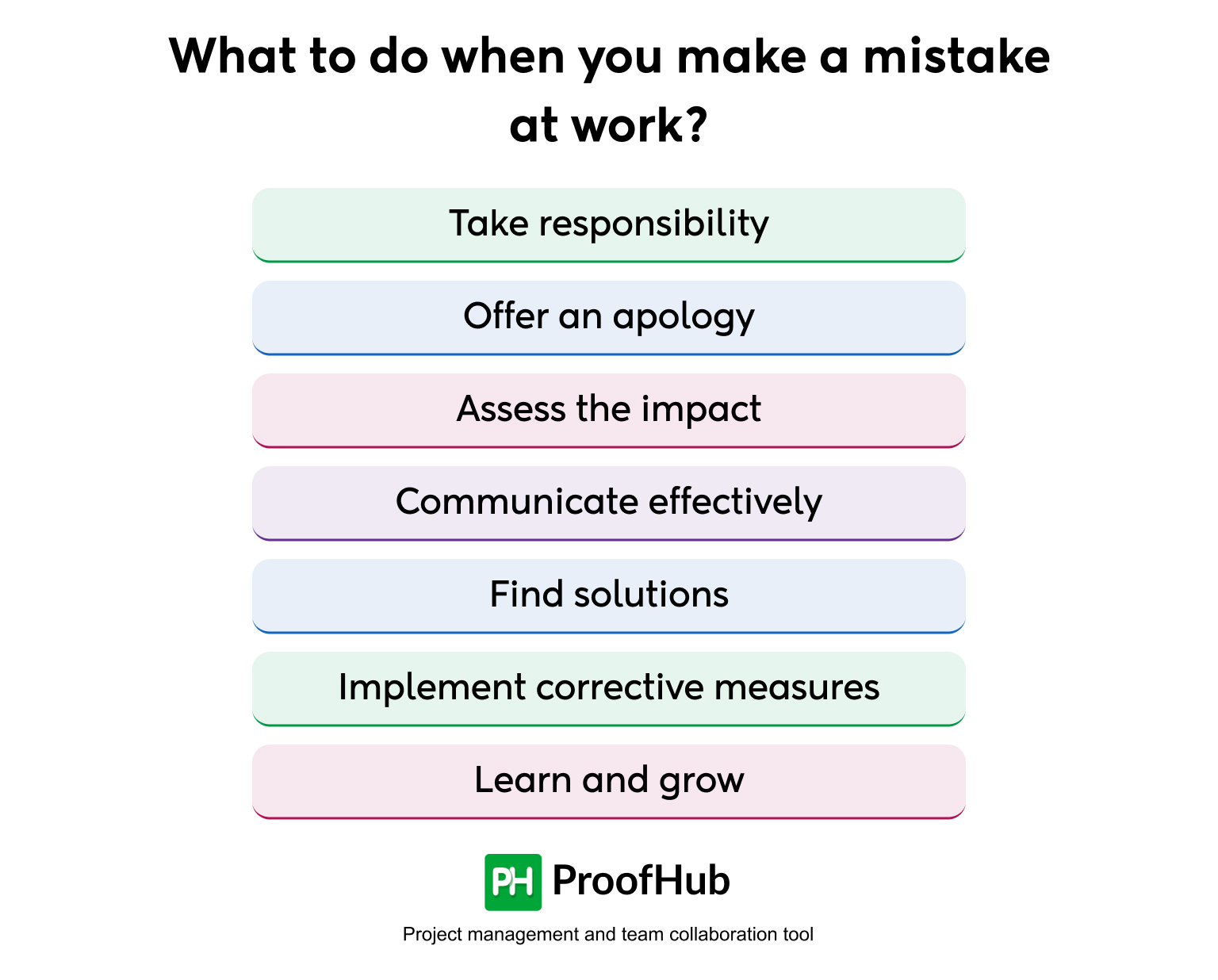How To Deal With A Mistake At Work
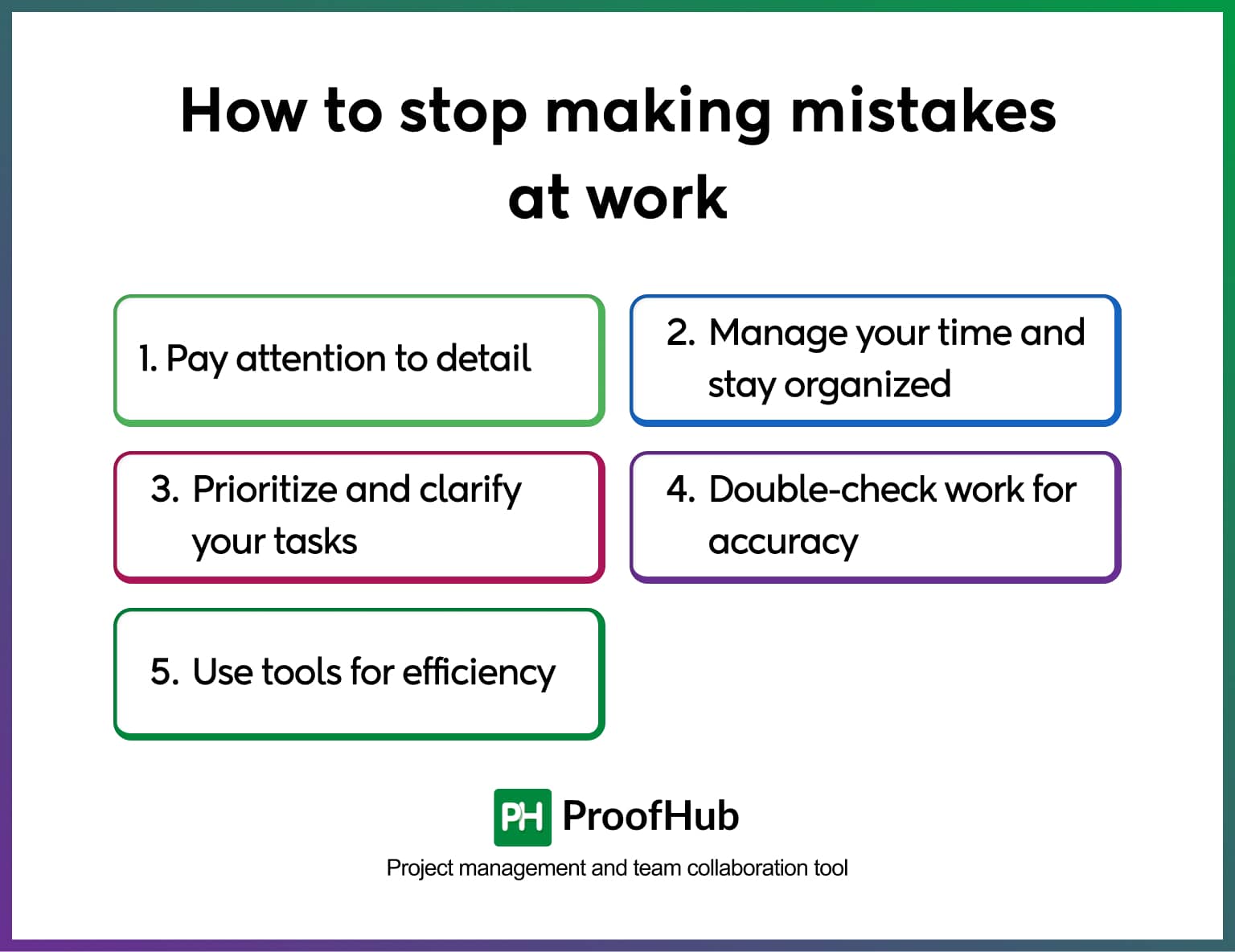
Making a mistake at work is a universal experience, yet navigating the aftermath can be fraught with anxiety and uncertainty. Whether it's a minor oversight or a significant blunder, how you handle the situation can significantly impact your professional reputation and future opportunities. Experts emphasize the importance of prompt action, transparent communication, and a willingness to learn from the experience.
The key to recovering from a workplace mistake lies in acknowledging the error, taking responsibility, and focusing on solutions. This approach, according to career coaches and human resource professionals, fosters trust and demonstrates professionalism. Understanding the steps involved in effectively addressing mistakes can empower employees to turn setbacks into learning opportunities and build stronger working relationships.
Acknowledging the Mistake and Taking Responsibility
The first step is often the most difficult: admitting you made a mistake. Avoid the temptation to deny, deflect, or minimize the issue. Dr. Anya Sharma, a workplace psychologist, states, "Honesty is crucial. A quick, sincere acknowledgement diffuses tension and signals integrity."
Taking responsibility means owning your actions and their consequences. Do not blame others or external factors, even if they contributed to the error. Instead, focus on what you could have done differently and what you will do to prevent similar mistakes in the future.
Immediate Actions: Assessing and Mitigating the Damage
After acknowledging the mistake, immediately assess the extent of the damage. What is the impact of the error? Who is affected? This initial assessment helps determine the appropriate course of action.
Next, focus on mitigating the damage. Can the mistake be corrected? What steps need to be taken to minimize the negative consequences? This may involve working late, contacting clients, or seeking assistance from colleagues. Addressing the damage promptly demonstrates commitment to resolving the issue.
Communicating Effectively: Transparency and Proactivity
Open and honest communication is paramount. Inform your supervisor or manager about the mistake as soon as possible. Delaying the conversation only exacerbates the problem and erodes trust.
When communicating, be clear, concise, and factual. Explain what happened, the impact of the mistake, and the steps you are taking to rectify the situation. Avoid making excuses or downplaying the severity of the error. Instead, focus on solutions and demonstrate a proactive approach to resolving the issue.
Learning from the Experience: Growth and Development
Every mistake presents an opportunity for learning and growth. Take time to reflect on what went wrong and why. What specific actions or decisions led to the error? What could you have done differently?
Identify the root cause of the mistake and develop strategies to prevent similar errors in the future. This may involve improving your skills, seeking additional training, or implementing new processes. Documenting these learnings can also prove useful for future reference and performance reviews.
Seeking Support: Collaboration and Mentorship
Don't hesitate to seek support from colleagues, mentors, or supervisors. Discussing the mistake with trusted individuals can provide valuable insights and guidance. They may offer alternative solutions or help you identify blind spots.
Collaboration can also lead to innovative solutions and strengthen team bonds. Working together to rectify the mistake fosters a supportive and collaborative work environment.
The Impact on the Workplace and Building Resilience
Handling mistakes effectively contributes to a culture of learning and accountability. When employees feel safe admitting errors and seeking support, it fosters a more open and collaborative work environment.
Building resilience in the face of mistakes is crucial for long-term career success. According to a recent survey by the Society for Human Resource Management (SHRM), employees who demonstrate resilience are more likely to advance in their careers. Learning from mistakes is not just about avoiding future errors; it's about developing the adaptability and problem-solving skills necessary to thrive in a dynamic work environment.
"Mistakes are inevitable," says John Carter, a leadership consultant. "It's how you respond to them that defines your character and determines your success."
In conclusion, navigating a mistake at work requires honesty, responsibility, and a commitment to learning. By acknowledging the error, taking prompt action, communicating effectively, and seeking support, employees can turn setbacks into opportunities for growth and build stronger, more resilient careers.

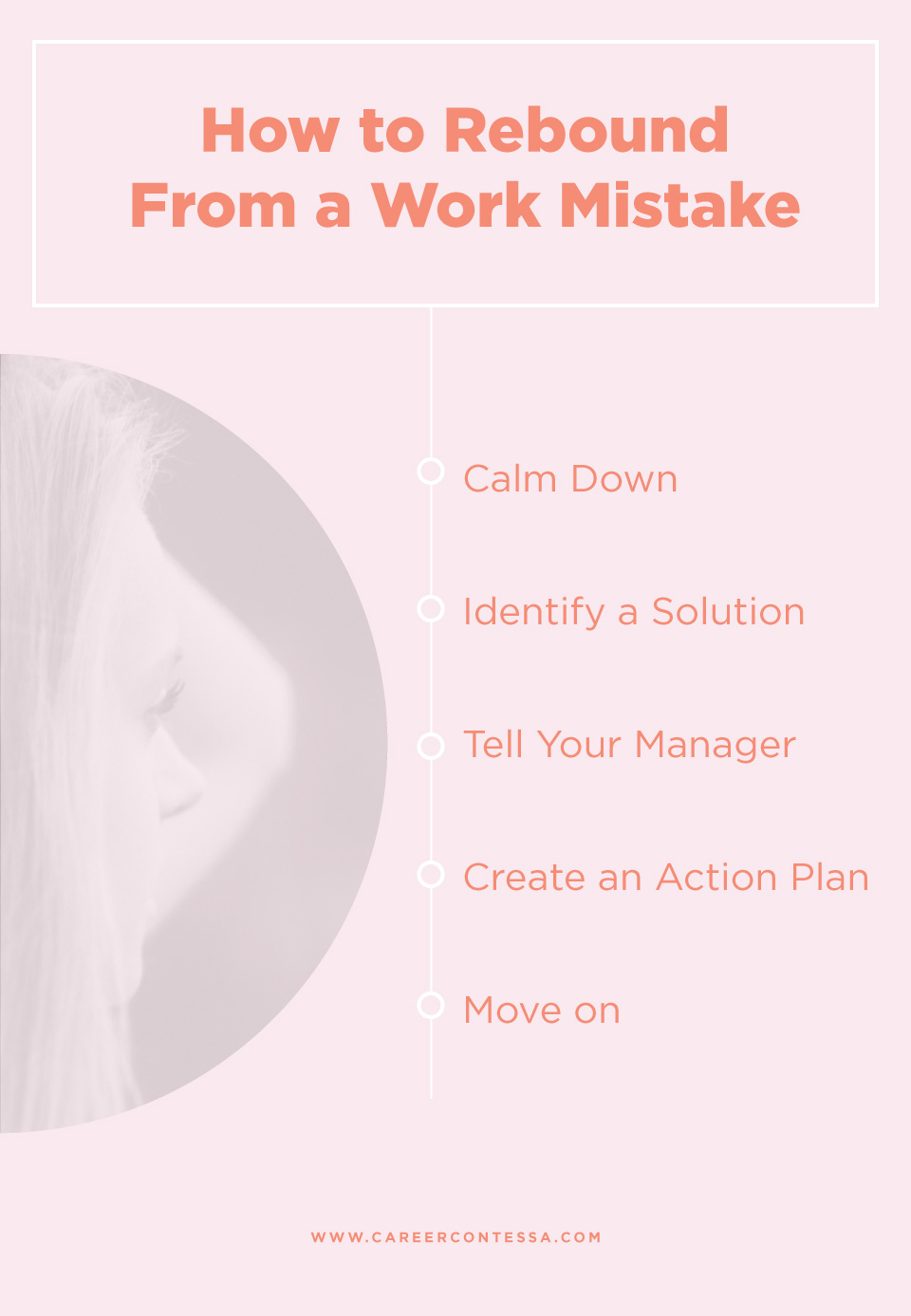



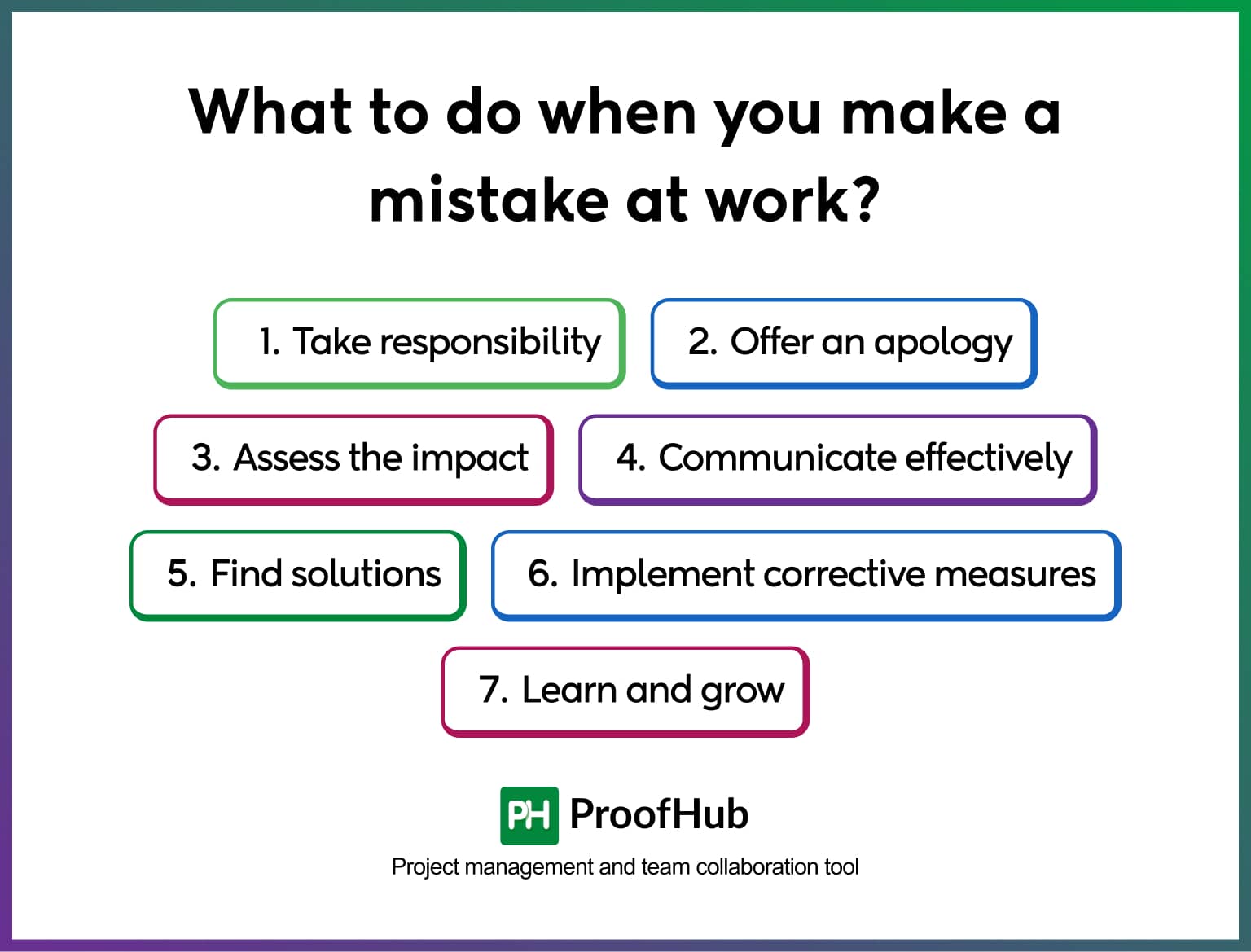


![How To Deal With A Mistake At Work [Infographic] I Made A Mistake At Work: The Do’s And Don'ts](https://www.niagarainstitute.com/hs-fs/hubfs/Niagara Institute - I Made A Mistake At Work Do’s And Donts Infographic (1).png?width=1480&height=2724&name=Niagara Institute - I Made A Mistake At Work Do’s And Donts Infographic (1).png)

